Making coffee to sweeten bitter lives of Manila's drug war victims
Two women were strangers to each other until they learned that a common thread binds them together — tragic loss and the hope to continue with life.
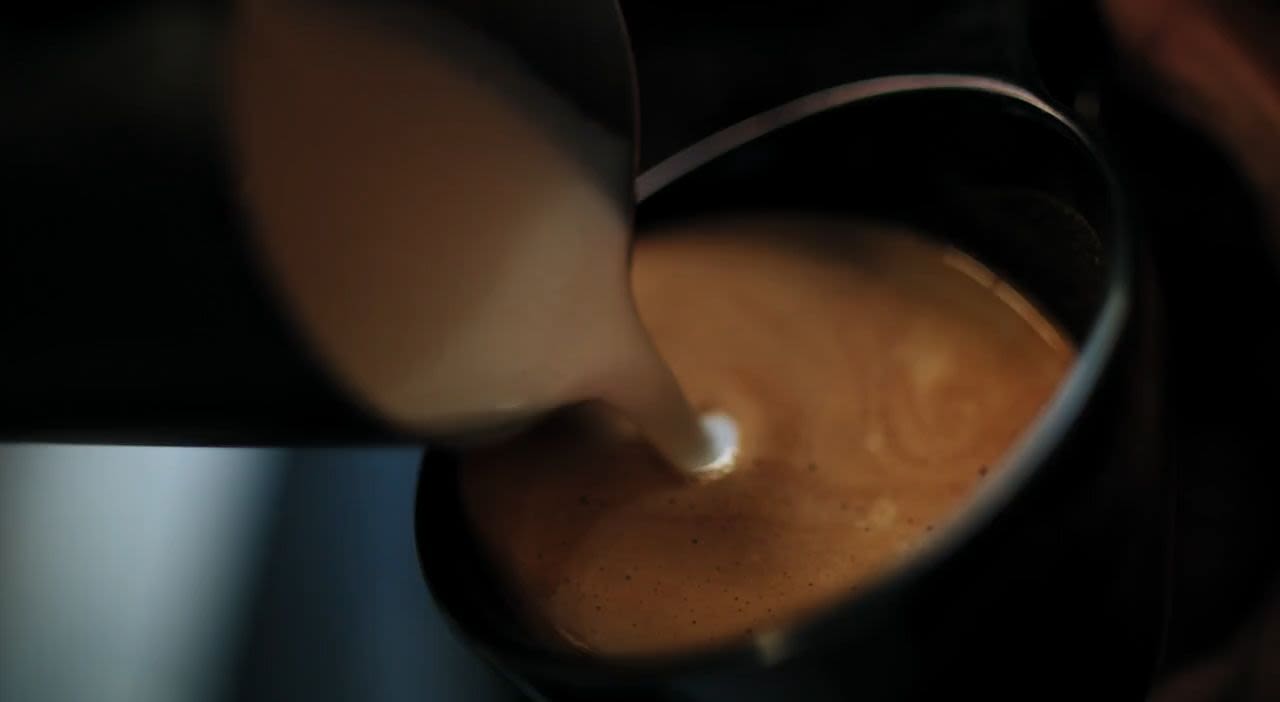
In a small stall in the middle of a party place in a suburb of the Philippine capital, a group of women keep their pain in silence amid the music and conversation fueled by alcohol, coffee, and cigarette smoke.
Agnes, 39, was nine months pregnant when she and her six children woke up to the noise of the police barging into their gate, tearing down the walls of their hut in the poor district of Payatas.
The police claimed they were looking for something inside the poor woman’s dwelling. They then dragged Agnes out, leaving her children wailing for their “mama.”
“They destroyed the gate and broke the walls of our house. They said they were looking for something, but they found nothing. Still the police arrested me,” a teary-eyed Agnes said.
“They ‘planted’ drugs and money on me, but I did not have that kind of cash. I didn't even have 50 pesos (about a dollar),” she said.
It was August 9, 2016, two months since Philippine President Rodrigo Duterte, who promised a “bloody war on drugs” during the election campaign, assumed power.
The International Criminal Court, which is conducting an investigation into alleged state crimes, noted that close to 30,000 people were killed in the “drug war.”
Dream lost
Agnes said it was Duterte’s men who sent her to the jail where she gave birth to and raised her seventh child. It was also Duterte’s men who killed her husband on December 6 of the same year.
Agnes learned about her husband’s death from television news while she was having dinner in prison.
“We lost our dream of a new life,” she said.
“When I was jailed, I told my husband to wait for me. ‘I will be free,’ I said. ‘When I get out of here, we will start anew far from this crazy place,’” Agnes said.
“But it did not happen because my husband is gone because of what Duterte did,” added Agnes.
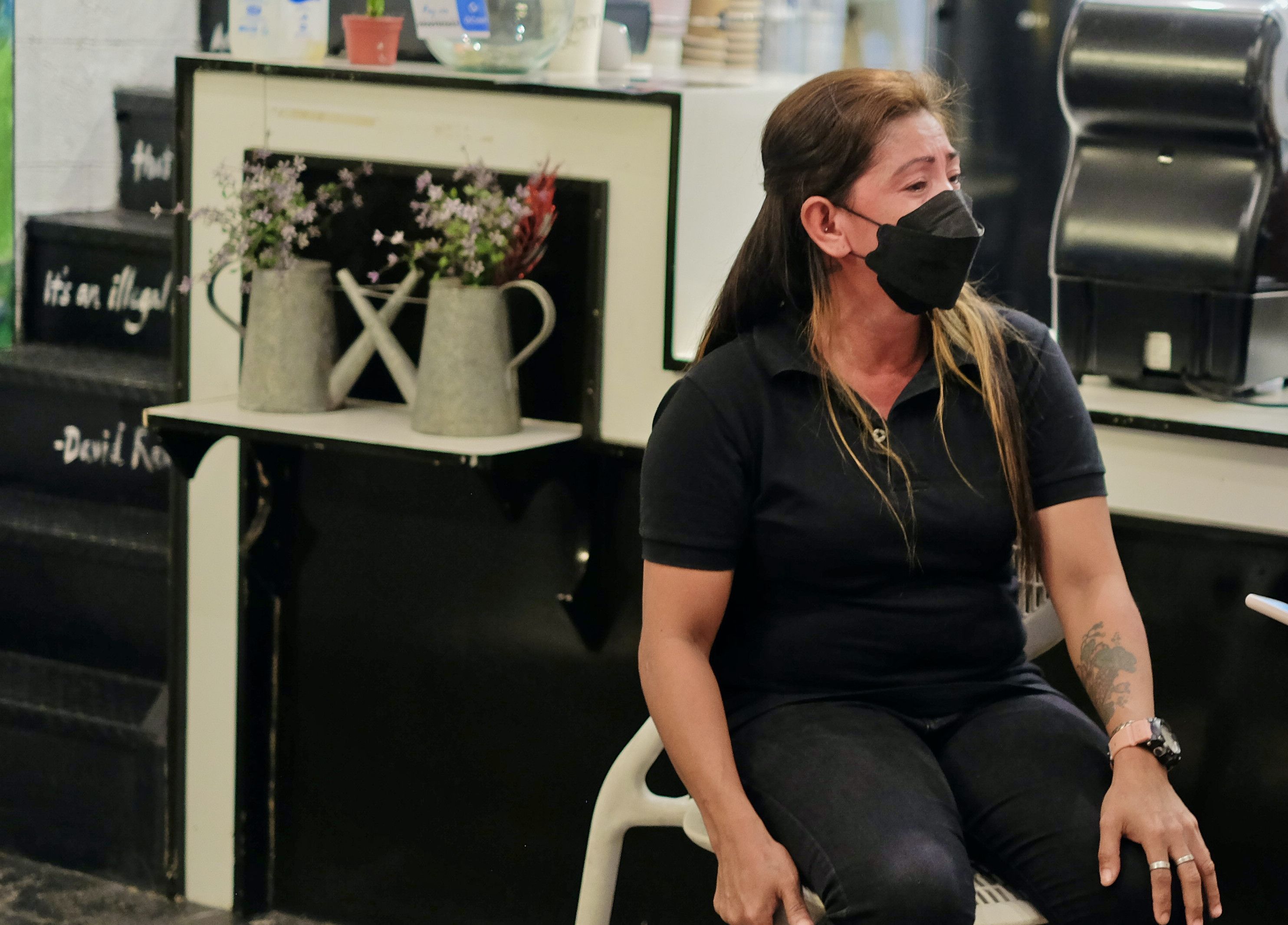
Agnes, 39, talks about the killing of her husband. (Photo by Miguel Gayares)
Agnes, 39, talks about the killing of her husband. (Photo by Miguel Gayares)
Agnes’ husband used to run a junk shop. Before he was killed, he was working in a vehicle repair shop while acting as a village watchman at night.
“He didn’t have much, but at least he was there,” said Agnes.
Faced with the reality that she has to lead the family alone, she was forced to plead guilty to selling drugs and was imprisoned for one year and six months.
She served her sentence three months longer.
“There were no options. I have to think of the children,” she said. Her mother-in-law who was taking care of the children was already 90 years old.
“Who would take care of them. I did not know what would happen, what awaits me,” said Agnes.
After her release, she was invited to attend a seminar conducted by Divine Word missionary priest Flaviano “Flavie” Villanueva who established the Arnold Janssen Kalinga Foundation in 2015 that runs a shelter for the homeless in Manila.
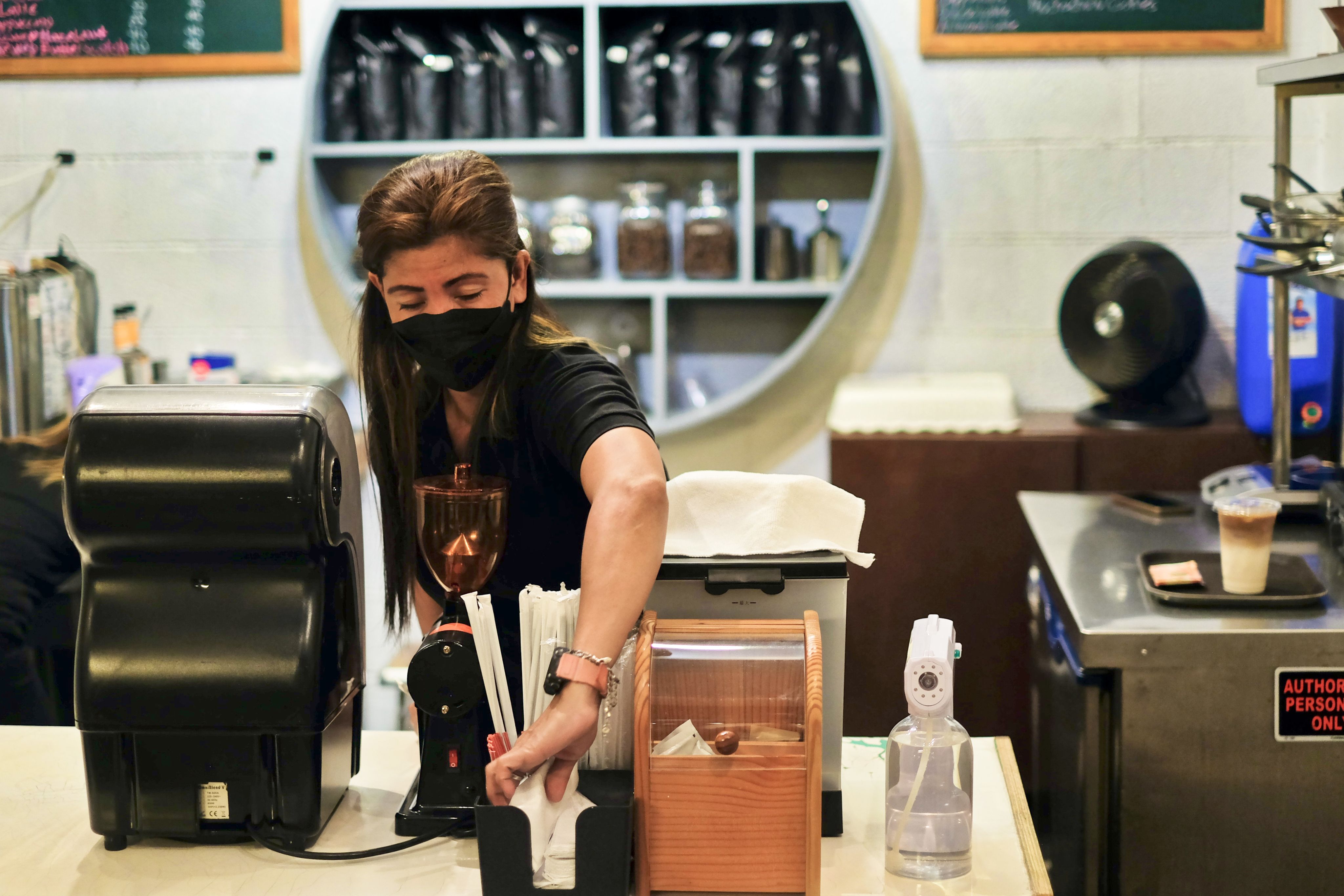
Agnes preparing coffee at Silingan Coffee (Photo by Miguel Gayares)
Agnes preparing coffee at Silingan Coffee (Photo by Miguel Gayares)
Background photo by Polina Tankilevitch
Program ‘Paghilom’
When the drug war started, leaving many lifeless bodies on the streets, Father Flavie came up with “Program Paghilom,” which translates to “healing,” a program to help families of victims of the killings.
It aims to provide “holistic healing” of the survivors through five developmental stages of intervention: food and healthcare; psycho-spiritual; legal assistance; educational assistance; and livelihood and employment.
“We have to identify who will be standing as the new bread winners because those who were killed were usually the breadwinners,” said the priest.
“In empowering [the survivors,] we hope they become sustainable and can eventually stand on their own,” he said.
Father Flavie said they recently added a “sixth phase,” which is the identification and training of coordinators who can train and form others in the community.
The project included the exhumation of the graves of victims and their cremation. “We’re still here, we never stopped,” said the priest.
The project was able to help 250 families with financial assistance worth about Php 3.2 million (about US$62,000) during the two-year pandemic.
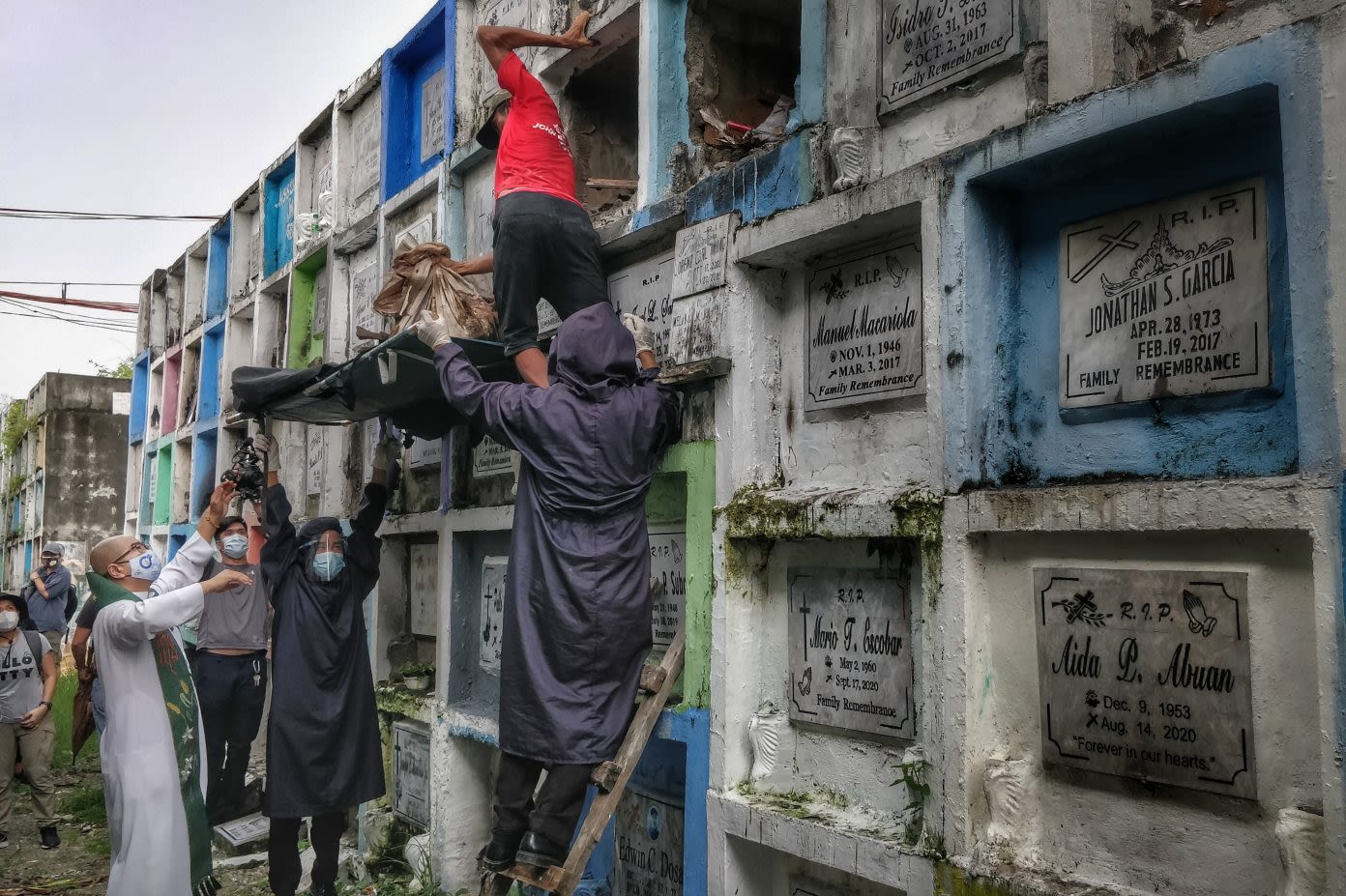
Divine Word missionary priest Flaviano “Flavie” Villanueva helps in the exhumation of the remains of a victim of the Philippine government’s “war on drugs” in a public cemetery in the capital Manila. (Photo by Vincent Go)
Divine Word missionary priest Flaviano “Flavie” Villanueva helps in the exhumation of the remains of a victim of the Philippine government’s “war on drugs” in a public cemetery in the capital Manila. (Photo by Vincent Go)
At least 271 families were provided with food packages; 50 orphans were given tablet computers for their online classes; and more than Php 500,000 (about US$10,000) was given as loan packages.
“Project Paghilom” partners with the De La Salle Brothers and other non-government organizations to sustain the program, although Father Flavie said its future “remains a challenge.”
“The dichotomy and ‘fear of getting involved’ makes it easier for people to commit to feeding the poor, rather than to bury their dead or to feed their bereaved families,” said the priest.
“However, sending the orphans to school seems a receptive invitation for them,” he told LiCAS.news.
Background photo: Menu and coffee machines at Silingan Coffee (Photo by Miguel Gayares)
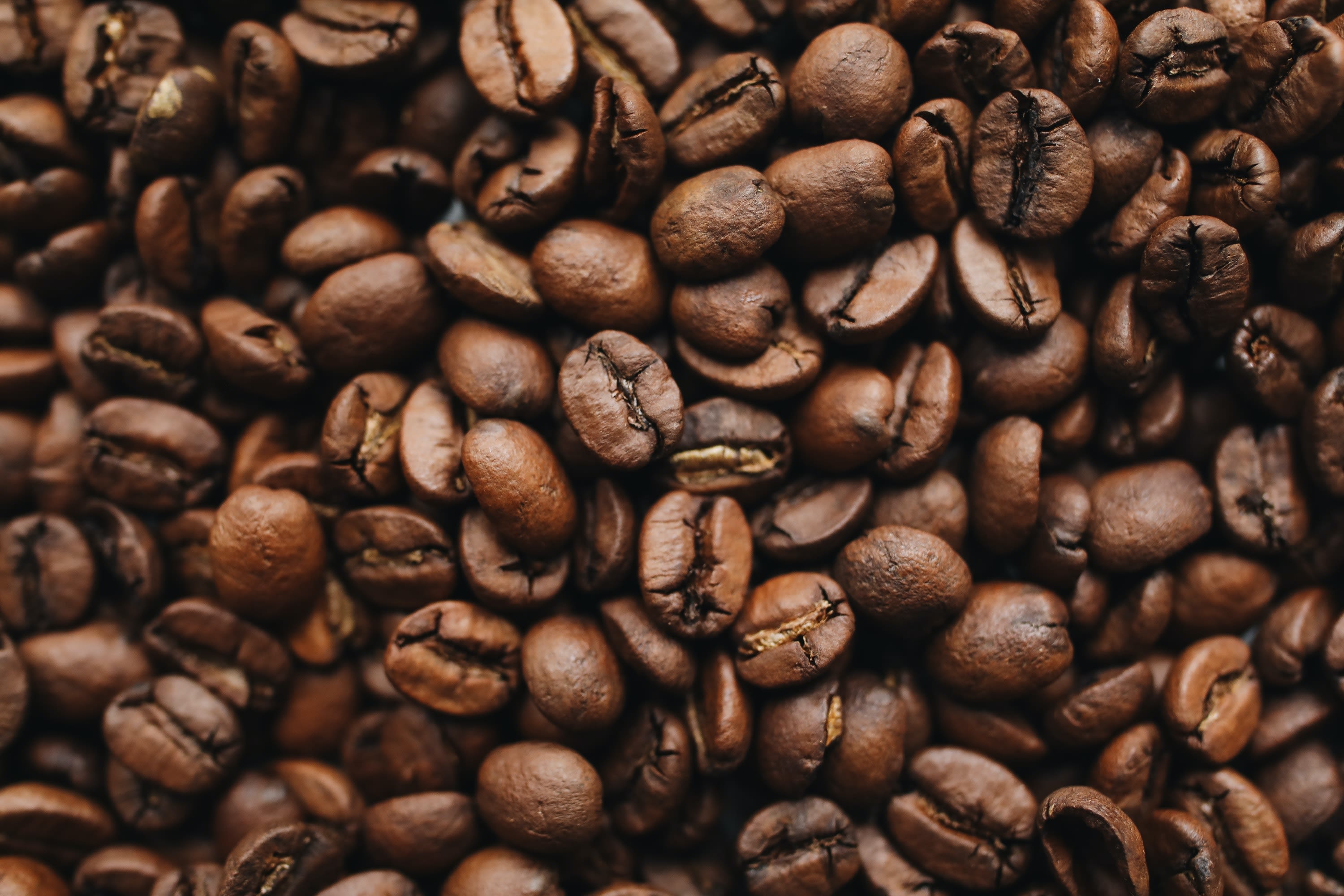
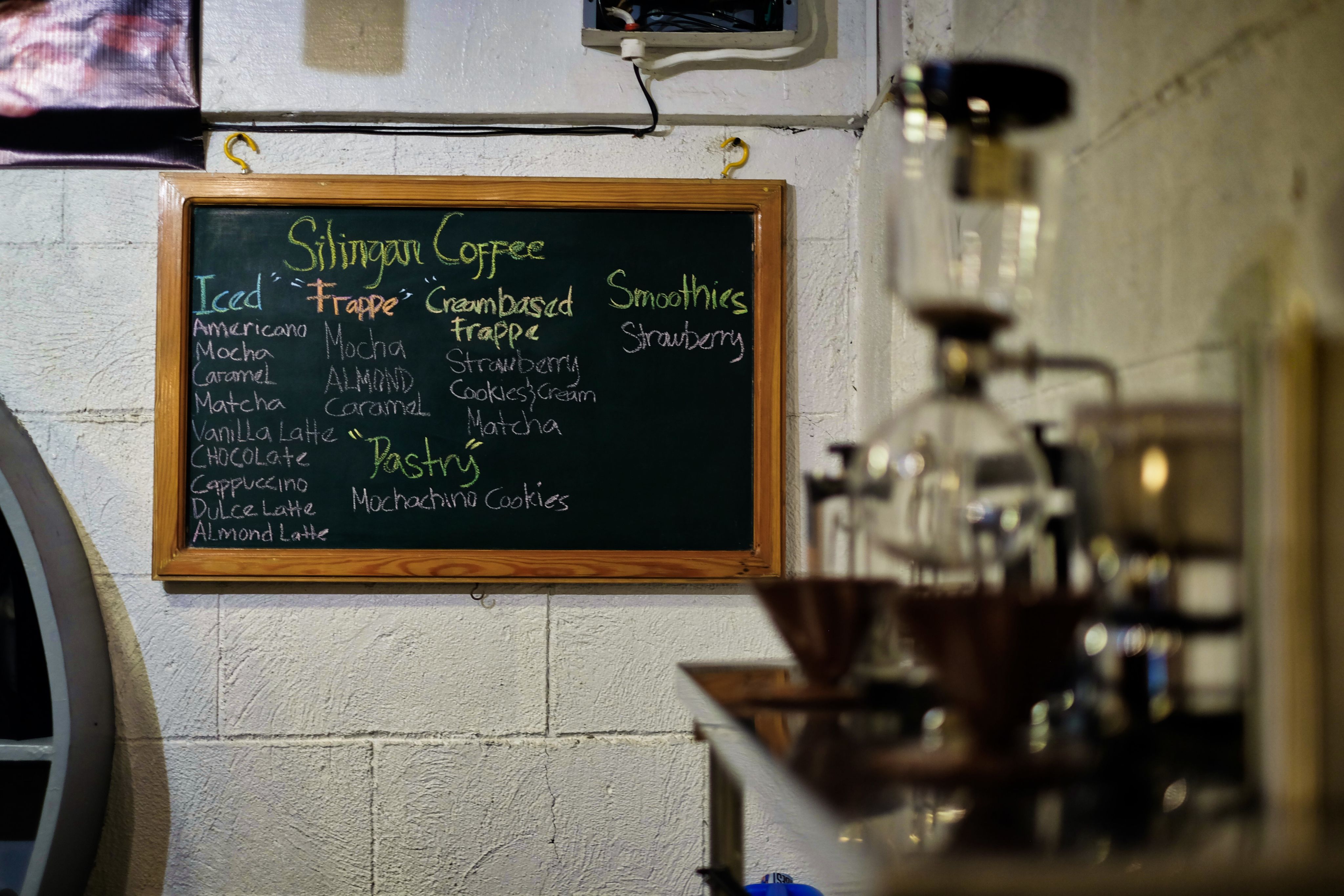
Another issue that the project faces is the “indifference” of the government to the issue, even acting as “oppressor than saviors.”
Agnes is among the 14 batches or 263 survivors helped by Project Paghilom, while her children were adopted by Project Solidarity with Orphans and Widows, an initiative of the Congregation of the Mission, or the Vincentians.
Currently, 35 widows and more than 50 orphans are being supported by the Vincentian’s project that aims, among others, to provide “psychosocial interventions” and treatments that will respond to the victims’ economic needs.
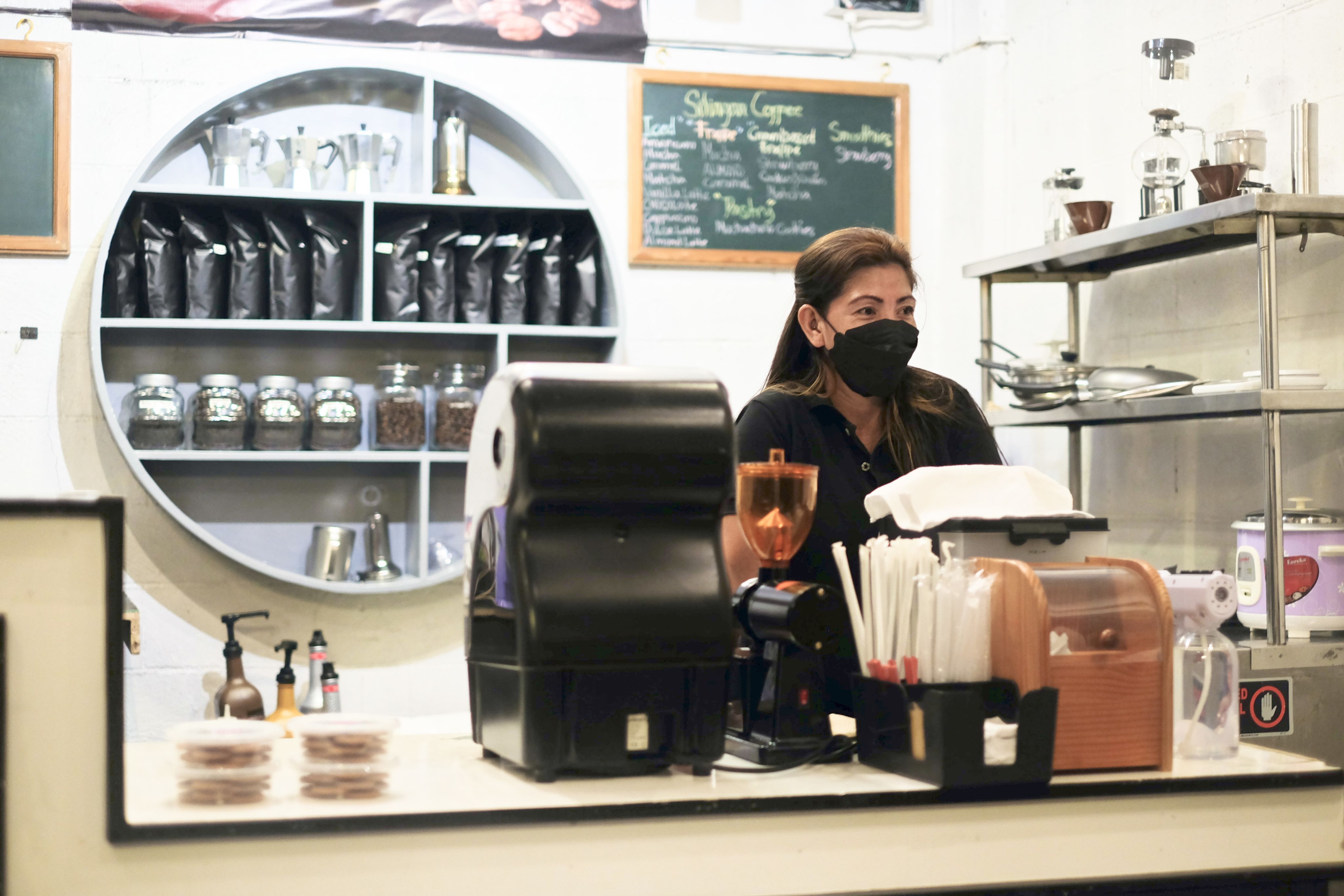
Agnes is among the 14 batches or 263 survivors helped by Project Paghilom. (Photo by Miguel Gayares)
Agnes is among the 14 batches or 263 survivors helped by Project Paghilom. (Photo by Miguel Gayares)
The solidarity project also provides financial assistance for “basic survival needs” while training and livelihood assistance are given to the families.
Agnes now earns extra from the “eco-friendly” bags and leather products that she learned to make under the Church project.
Late last year, she was referred to the coffee shop in Cubao Expo in Quezon City that is being run by Redemptorist Brother Ciriaco Santiago III.
Background photo by Dan Smedley
Angel's wings clipped
At the shop, Agnes met Angel, 38, who used to work in a bar.
Through Brother Santiago’s help, Agnes learned how to be a barista and helped the religious brother set up Sinirangan Cafe in 2015 to provide alternative livelihood to sex workers.
When the cafe closed in 2021 due to the pandemic, Angel, the bread winner of her family, worked in a store for about US$120 a month to support her parents, three siblings, and two children.
“I was earning, but it was not enough to make the family survive,” she said.
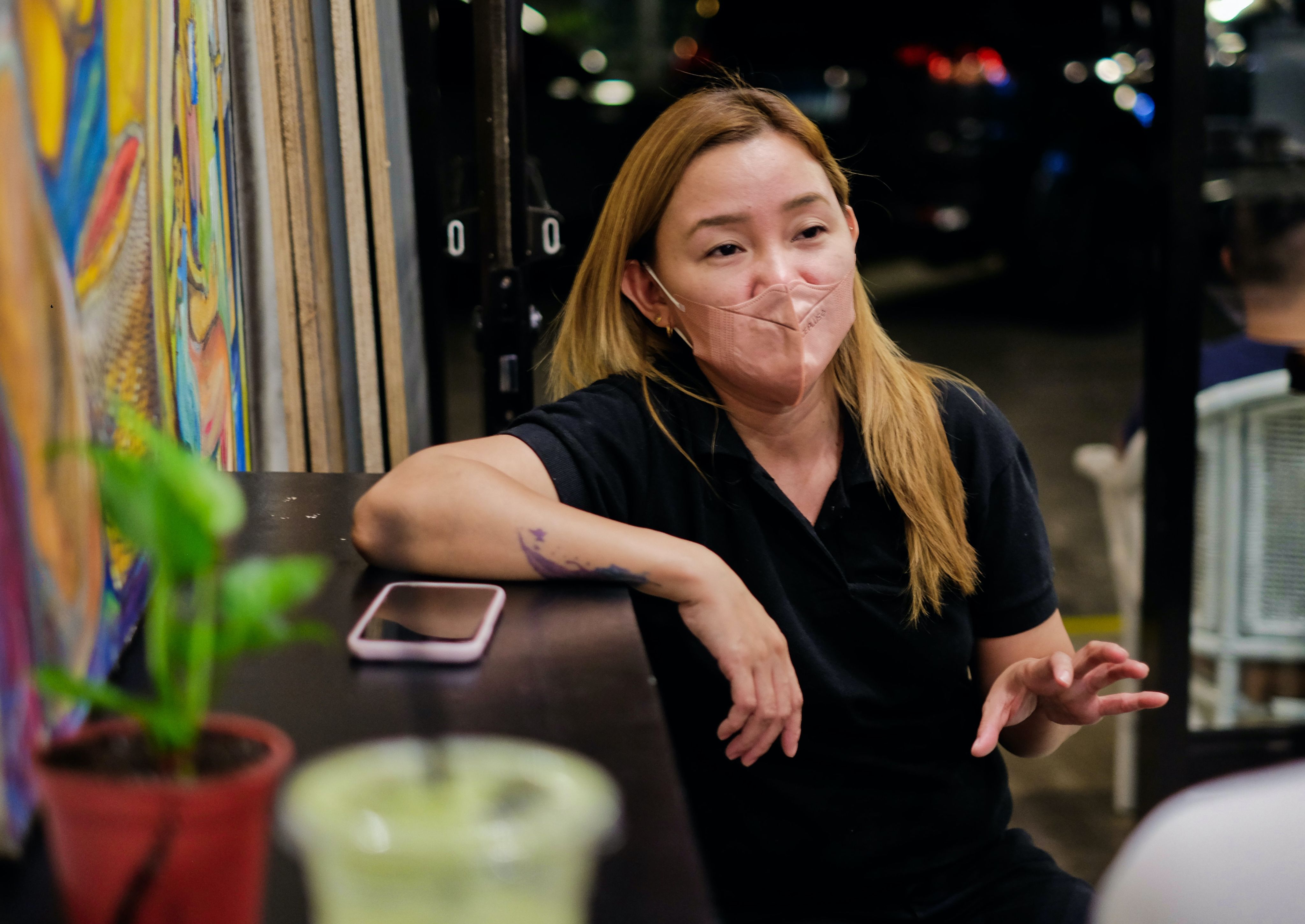
Angel talks about her work at Silingan Coffee. (Photo by Miguel Gayares)
Angel talks about her work at Silingan Coffee. (Photo by Miguel Gayares)
She said that when Brother Santiago offered her to work in the new coffee shop, “I did not know that it is for the families of drug war victims.”
It was a coincidence because in 2016, Angel’s brother, Mark, who used to volunteer as a village watchman, was killed by masked gunmen.
On the night of November 12 that year, Mark skipped his schedule and had a party with friends, one of whom was a drug peddler.
“My brother did not have a record. He was really good. He would go with anyone. For him, everyone’s a friend,” said Angel.
A man shot Mark on the leg, mistaking him to be the target. The first volley of fire sent his friends running.
“My brother did not run because he would always say, “Why would I run if I am innocent,” said Angel. “I told him that the bullet would not say ‘Excuse me.’ And that was what happened.”
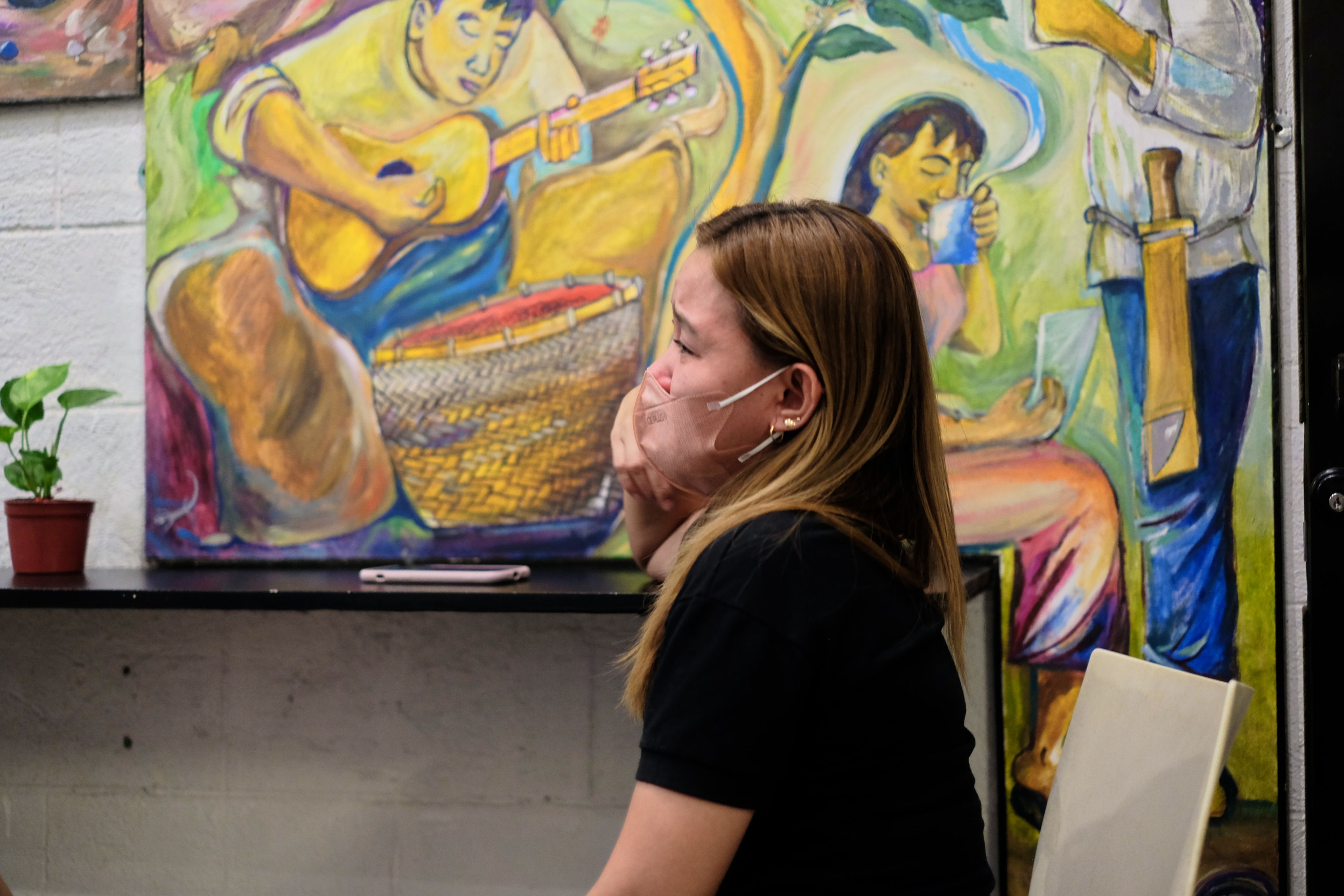
Angel, 38, recalls her brother's murder by masked gunmen. (Photo by Miguel Gayares)
Angel, 38, recalls her brother's murder by masked gunmen. (Photo by Miguel Gayares)
There were witnesses, but nobody wanted to come forward.
A neighbor reportedly overheard Mark begging for his life, but the bullets rained that night.
Records show that Mark sustained 13 gunshot wounds, but police investigators told Angel that her younger brother, the only boy in the family, suffered more than 20 gunshot wounds.
“Until now, our mother does not know how many bullets pierced my brother’s body,” she said. “Until now, every time I go home, my old mother drinks herself to sleep, to forget.”
With the loss of a dear brother came the loss of a dream. “It was a lot of dreams,” said Angel.
“If my brother was only alive, I could have a partner to earn a living for the family, for our parents, for our siblings,” she said.
Angel now earns a minimum of about US$10 a day.
“It’s a big help. At least I am earning something. You can feel that there is still hope,” she said.
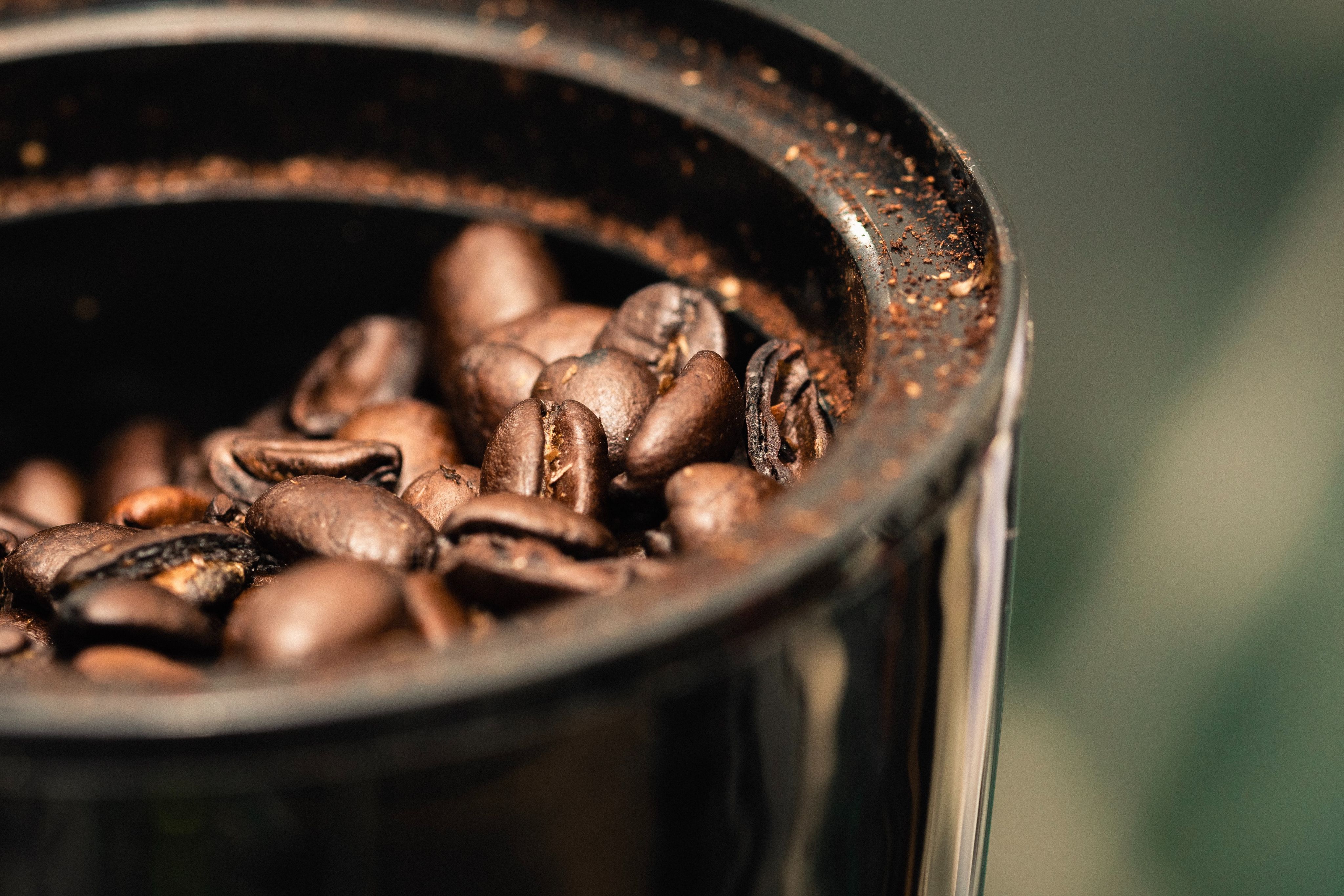
Agnes, Angel, and two other women working in the coffee shop were strangers to each other until they learned that a common thread binds them together — tragic loss and the hope to continue with life.
Brother Santiago said Sinirangan means “neighbor,” and he and friends in the art community who uses the shop as an art gallery, chose the name for their “dream of bringing back the Filipino culture of ‘pakikipag-kapitbahay (neighborhood)’ and ‘pakikipag-kapwa tao (fellowship).’” he said.
The goal is to let the women own the coffee shop and to keep it running so they can be economically independent.
Now, what’s important is to “show them that we are here and a new beginning is possible,” said the Redemptorist brother.
He said “empathy” is their coffee’s main ingredient, served by relatives of drug war victims “whose stories we hope the country remembers.”
With generous support from
Aid to the Church in Need
Dreikönigsaktion
missio Aachen
Text by Marielle Lucenio
Published April 8, 2022
© Copyright MMXXII LiCAS.news
